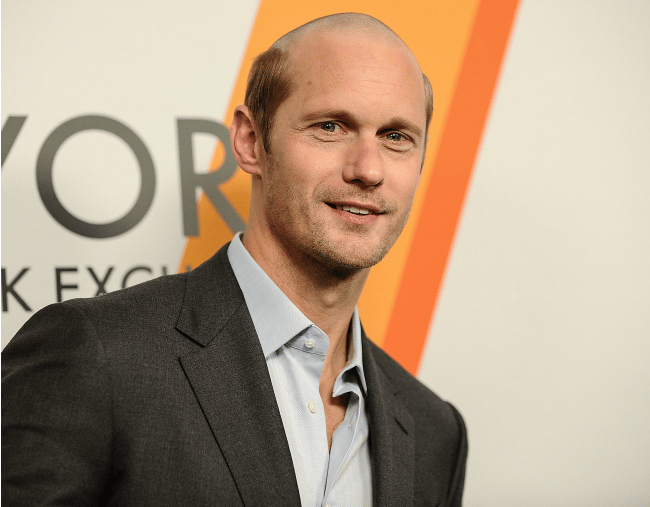Alexander Skarsgard has sparked a social media frenzy by walking the red carpet with a lot less hair than usual. His new look could best be described as “male pattern baldness” – nothing at the top, a bit at the sides. USA Today has speculated that he’s partially shaved his head for a role he’s currently shooting in The Hummingbird Project.
Still, it’s been enough to draw gasps from his fans.
“WTFFF Alexander Skarsgard better win a damn Oscar for whatever this movie is,” tweeted Joy.

For many people, it comes as a shock to see what is essentially typical male hair loss on a Hollywood actor. Its presence in the media is far and few between.
Top Comments
Personally, I love guys with shaved heads! Always been a hugely attractive to me - love a guy who can pull off a freshly shaved head - my hubs is shaved and it was one of the first things I noticed about him when we met. I always thought hair loss was associated with more testosterone and virility anyway (in this day and age of decreasing male fertility that can only be a good thing, right?) as the article said, it’s a shame that fact isn’t more widely known.
Just think of the savings on shampoo!
Maybe some of these men need to start looking at women their own age.
I'm sure that's very helpful to those suicidal men.
There was one comment from one guy in the story to do with younger women.
Well older women , 40 plus, want sex more often, so there is that.
Bald men are not a turnoff for me at all. Take Jean Luc Picard for example. Dishy. People rave about "the Rock" though he's not my type, but quite attractive. He's being pushed forward for President, he'd give Trump some real competition.
...Because older women are so non-judgemental.
Depends on the woman.